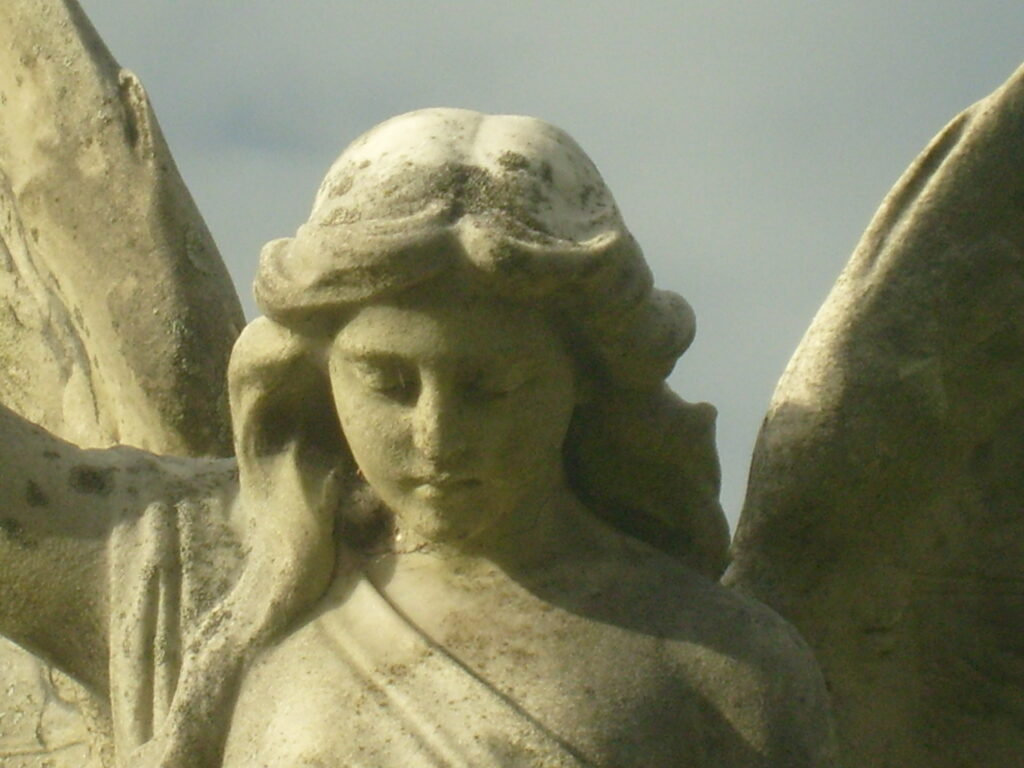Spirituality is one facet of our human nature concerned with subjects like meaning, transformation, higher wisdom, and connection: to others, to purpose in life. It is another aspect of human nature, just like our sexual, social, recreational, intellectual, and other needs.
Religion is a group of beliefs and spiritual practices, usually thought of as a church, meant to help people grow spiritually, draw closer to God, or (for those who don’t believe in God) draw closer to the universal truth or wiser inner self.
Spirituality in Human Nature

I have observed in my therapy practice that certain aspects of human nature carry the most pressing life energy. I see these things as being at the core of our human spirituality. Those who don’t see themselves as religious or spiritual, bristle when I tell them that I observe this “spirituality” in them.
What ever you might call it, I describe it as the drive to:
- find meaning in life;
- develop one’s unique gifts and use them;
- feel fulfilled, rather than empty;
- find purpose beyond today or this world;
- rise and stretch ourselves above the confines of the limited ego and all that is human and imperfect;
- connect with the Creator or the higher self, the inner voice that can guide us in the right direction;
- belong to something larger than ourselves;
- be seen for who we are and to have our experiences known or cared about by at least one other person in the world;
- triumph over fear and futility;
- sense the presence of a greater force or wisdom beyond our capacity for knowing.
Spirituality is About Living, Not Dying
I’ve frequently heard people say they don’t have to worry about religion or spirituality until they are ready to die and contemplate an afterlife.
This makes me want to grab them by the shoulders and shout: living in and by the spirit is what makes life worth living! When you are ready to die it will be too late!
Since some religions have used a fear of hell mentality to frame their message, this is a common reaction, for people to think that religion has nothing to do with life only death, and it is unfortunate. I see a great deal of human suffering and desolation where people have neglected their spiritual human nature.
If a person wants to run a marathon we expect them to train, to practice every day. This is true for all aspects of life – spirituality too. Too many people have ended their affiliation with a specific church, or decided they really don’t believe in God so much and neglected their spiritual nature as a result.
This doesn’t mean that their spiritual needs have disappeared. These are still there, and it helps to have some form of regular practice that address the needs of the spiritual human nature.
Reading spiritual books, praying or meditating, exposing ourselves to the inspiring (i.e. nature, art, music), exposing ourselves to suffering (i.e. seeking out and helping those in need), engaging in something both worthwhile and difficult (i.e. being a more loving spouse or parent) or seeking a wise mentor can help keep this part of us alive.
When people disengage from a religion that has disappointed them it may seem like a solution to their problem, but if they never develop a satisfying spiritual practice in its place, or find a more suitable faith community, spirituality can be suppressed, wounds can remain unhealed, and time can slip away before they get to do what they might really need or want to do in life. This is why it is important to understand the difference between the institution of religion, and the basic human need for, what I call, spiritual fulfillment.
©Lisa C. DeLuca, all rights reserved. It is a violation of copyright law to reproduce this work on the web or for profit without written permission from the author. This article was originally published on the web in 2008. Please contact the author with your reprint request.
